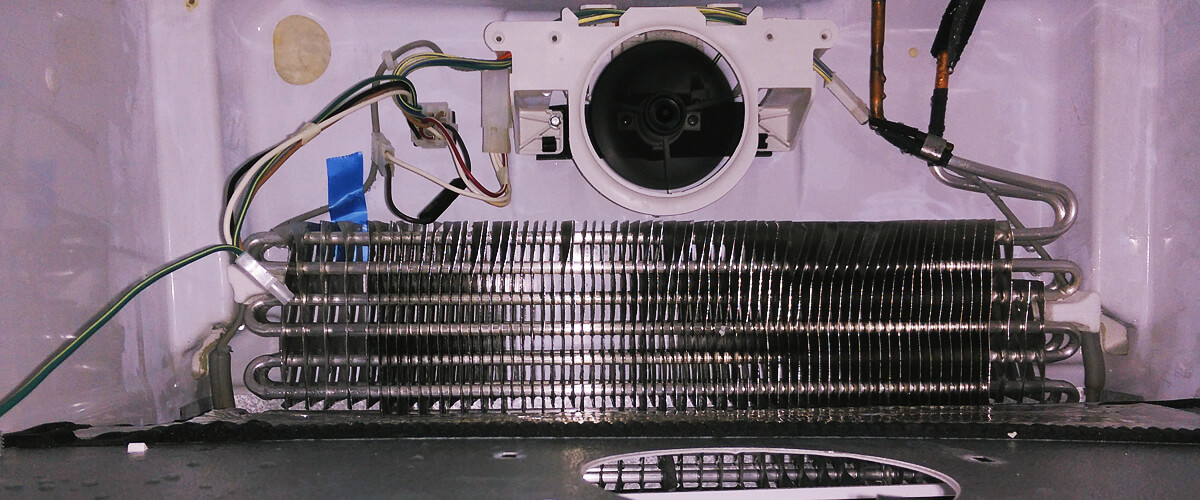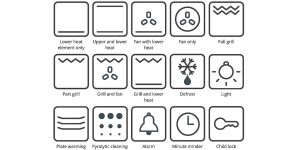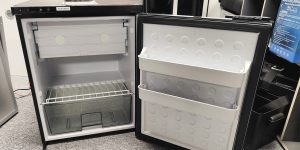Have you ever been working or watching TV in your kitchen when suddenly your fridge starts making a loud humming noise? It’s not only annoying but also concerning. After all, your fridge is an essential appliance you rely on daily to keep your food fresh and safe. So what could be causing this noise?
In this article, I’ll look at various reasons why your refrigerator may make a loud humming noise, from simple problems, such as a loose part, to more serious ones, such as a failed compressor. Then, given my extensive experience, I’ll give some helpful tips on how to diagnose malfunctions. So by the end of this review, you’ll better understand why your refrigerator is making noise and what you can do to fix it.
What can be the cause of the fridge making a loud humming noise?

There are several reasons why your fridge might be making a loud humming noise. One of the most common causes is a malfunctioning or overworked compressor. This component is the heart of your fridge and is responsible for cooling the air inside. It can produce a loud humming or buzzing noise when it’s not functioning correctly.
Another possible cause of the loud humming noise is a faulty fan. Your fridge has two fans, one in the freezer and one in the back. They circulate air to maintain the temperature inside the fridge. If one of the fans is not working correctly, it can produce a humming or whirring sound.
Lastly, a loose part or component inside your fridge can also be the cause of loud humming noise. This can be anything from a loose fan blade to a faulty condenser coil. In any case, it’s essential to identify the noise source to prevent further damage to your fridge.
Do all fridges have a fan?
No, not all fridges have a fan. However, most modern models have at least one fan, and some have multiple fans. The purpose of the fan is to circulate air inside the fridge and freezer, which helps to maintain a consistent temperature throughout. This is especially important in frost-free fridges, which rely on a fan to circulate air over the evaporator coil to prevent ice buildup.
In some older models, there may not be a fan in the fridge section, but there is likely still a fan in the freezer section. However, if you have a manual-defrost fridge, it’s possible that there may not be any fans at all. Therefore, referring to your fridge’s user manual is important to determine if and where the fans are located.
Why should you care about the fridge making a loud humming noise?

You should care about your fridge making a loud humming noise because it could be an indication of a problem that needs to be addressed. Ignoring the noise could lead to more significant issues and even a complete fridge breakdown.
A malfunctioning compressor, for example, can result in poor cooling performance, spoiled food, and increased energy consumption. A faulty fan can cause uneven cooling, ice buildup, and even damage to the compressor. Additionally, a loose part inside your fridge can cause additional wear and tear on other components, potentially leading to more extensive repairs in the future.
In summary, a loud humming noise from your fridge is not something you should ignore. Addressing the issue promptly can help prevent more significant problems and save you money on repairs or even a costly fridge replacement.
How to fix a fridge making a loud humming noise
As a fridge master with years of experience, I have a few tips and tricks up my sleeve for fixing a fridge that’s making a loud humming noise.
Materials and tools needed for the job
Of course, the specific materials and tools you need will depend on the source of the noise and the type of fridge you have. Moreover, it’s always a good idea to consult your fridge’s user manual or a professional if you’re unsure about how to proceed.
| Material/Tool | Purpose |
|---|---|
| Soft brush | Cleaning dust and debris from the compressor or other components |
| Vacuum | Cleaning dust and debris from the compressor or other components |
| Screwdriver | Tightening or removing screws from fridge components |
| Wrench | Tightening or removing nuts or bolts from fridge components |
| Cleaning solution | For cleaning fridge components |
Step-by-step instruction
First things first, you’ll want to locate the source of the noise. Is it coming from the back of the fridge, the bottom, or the inside? Once you’ve identified the source, you can start troubleshooting the problem.
As I’ve said, a malfunctioning or overworked compressor is one of the most common causes of loud humming noise. If this is the case, you may need to replace this part. However, before you do that, ensure the compressor isn’t simply dirty or clogged with dust and debris. A quick cleaning with a soft brush or vacuum may solve the problem.
Another potential cause of the loud humming noise is a faulty fan. If you have a fan in your fridge, check if it’s running smoothly. A loose fan or making strange noises may need to be replaced.
Finally, if the noise comes from the fridge’s inside, it could be a loose part or component. Check to see if any of the shelves, drawers, or other components are loose or damaged. Tightening or replacing them may solve the problem.
Regarding materials and tools, you’ll want to have a soft brush, a vacuum, and possibly a screwdriver or wrench on hand. As for products, many great cleaning solutions are on the market specifically designed for cleaning fridge components.
The table shows the basic steps you should take when you detect problems.
| Step | Instructions |
|---|---|
| 1 | Unplug the fridge from the wall outlet. |
| 2 | Locate the source of the noise. |
| 3 | Clean the compressor using a soft brush or vacuum. |
| 4 | Check the fan and tighten any screws or nuts that may be loose. Replace the fan if necessary. |
| 5 | Inspect other components for loose or damaged parts. Tighten or replace as needed. |
| 6 | Plug the fridge back in and turn it on. |
| 7 | Monitor the fridge for a few days to ensure the noise doesn’t return. |
In conclusion, fixing a fridge that’s making a loud humming noise may seem daunting, but with a little bit of troubleshooting and some basic tools, it’s a job that anyone can do. Don’t hesitate to call a professional if you’re unsure or uncomfortable with the process, but with a little bit of effort, you can have your fridge running smoothly and quietly in no time!













